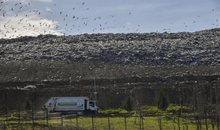
 Flash News
Flash News
The French footballer is declared the "player of the season" in the Champions League
Flames engulf the Darëzeza forest massif in Fier
Serious accident in Vlora, vehicle collides with two young people, one of them dies
Durrës Border Police find two tourists on a speedboat, one dead, the other in serious condition
Car hits motorbike, 25-year-old dies in Bilisht
The May 11 elections, with old problems
Zgjedhjet parlamentare të 11 majit 2025 në Shqipëri u zhvilluan në një atmosferë të polarizuar politike. Sipas vëzhguesve të OSBE/ODIHR, procesi ishte konkurrues, por u njollos nga sfida të përsëritura si përdorimi i burimeve shtetërore, presioni ndaj votuesve dhe mungesa e transparencës financiare. Këtë herë, vëzhguesit vunë re praktika që synonin ndikimin elektoral, si bonusi i pensionistëve dhe falja e gjobave në minutë të fundit nga qeveria.
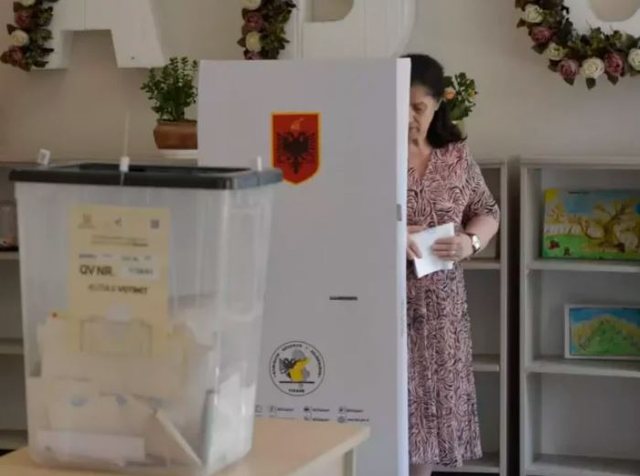
The parliamentary elections of 11 May 2025 in Albania took place in a tense political atmosphere, where polarization and a lack of equality between dominant and smaller parties were evident. According to the OSCE/ODIHR preliminary report, the electoral process was competitive and professionally administered, but long-standing challenges such as the use of state resources for campaigning, pressure on voters, and a lack of transparency in campaign financing remained present.
Michael Gahler, Head of the European Parliament Delegation, called the misuse of state resources during the campaign worrying, specifically mentioning the use of the pension scheme and the government's forgiveness of fines.
"Some interlocutors raised concerns about the misuse of state resources. The use of the pension scheme at the last minute, the forgiveness of fines," Gahler emphasized.
Despite a generally calm atmosphere, voting day was marked by non-compliance with procedures, intimidation and administrative problems. Late changes in the composition of the commissions negatively affected the progress of the process. In one third of the monitored centers, irregularities in the opening of the polls and interference by unauthorized persons were reported.
Electronic voting had problems such as lack of training of operators and exceeding the allowed time for voting. In many cases, the secrecy of the vote was not respected, group voting and proxy voting were observed. There were also problems with biometric identification due to non-functional equipment.
In some centers, observers noted attempts to influence voters and allegations of vote buying. Several incidents were reported to the prosecutor's office. Accessibility for people with disabilities was lacking in half of the polling centers.
The counting process
The vote count took place amid tensions in some cases. The postponement of preliminary results in Vora and unit number 10 in Tirana, at the request of the Democratic Party, affected the transparency of the process. In some centers, the lack of respect for procedures as well as the failure to provide copies of results to party representatives reduced credibility.
In Dibër and Elbasan, the training of counting members was done at the last minute, affecting the quality of administration.
On the other hand, the CEC applied for the first time to vote from abroad by mail, although about 41 thousand applications were rejected due to lack of documentation. The use of technology for electronic identification and voting was assessed as a positive step, but with concerns about the lack of independent auditing and transparency.
Dominance of major parties
Fushata zgjedhore u karakterizua nga një diskurs polarizues dhe mungesë e fokusit në programet politike. Partitë kryesore, veçanërisht Partia Socialiste dhe Partia Demokratike, dominuan mbulimin mediatik, duke lënë pak hapësirë për partitë më të vogla dhe kandidatët e pavarur. Përdorimi i burimeve shtetërore për fushatë dhe përfshirja e zyrtarëve të lartë në aktivitete zyrtare që përkonin me mesazhe fushate ngritën shqetësime për ndarjen e shtetit nga partia.
Mjedisi mediatik u vlerësua si i kufizuar, me pronësi të përqendruar dhe ndërhyrje në autonominë editoriale. Mungesa e mbulimit të pavarur dhe kritike, së bashku me vetëcensurën e gazetarëve, kufizuan mundësinë e votuesve për të marrë një informacion të plotë dhe të paanshëm.
Transparenca në financimin e fushatës mbeti një sfidë, me mungesë të raporteve të ndërmjetme dhe publikimit të të dhënave mbi donacionet dhe huatë. Mungesa e mekanizmave të fortë për zbatimin e ligjit dhe auditimin e shpenzimeve zgjedhore uli besimin në barazinë e garës.
Zëri i shoqërisë civile
Komiteti Shqiptar i Helsinkit, Qëndresa Qytetare dhe Instituti i Studimeve Politike, me 60 vëzhgues në 17 bashki, raportuan për një realitet të deformuar pas fasadës së një procesi “normal”. Ata ngritën shqetësime për shkelje të heshtjes zgjedhore, prani të vëzhguesve partiakë të paakredituar, dhe intimidim të votuesve në disa zona si Tirana, Lushnja dhe Pogradeci.
Organizatat kritikuan rolin pasiv të prokurorisë dhe kërkuan hetime të menjëhershme dhe të paanshme për të gjitha shkeljet, si dhe një administratë zgjedhore të depolitizuar.
“Për mua ishte një shans i humbur,” deklaroi Afrim Krasniqi nga ISP, duke nënvizuar dështimin për të ngritur standarde demokratike pas 35 vitesh pluralizëm.
Një shqetësim i përsëritur ishte blerja e votës. U regjistruan 177 kallëzime penale, shumica nga institucionet dhe jo nga qytetarët, duke reflektuar mungesë besimi dhe frikë nga pasojat. Reagimi institucional vlerësohet si i vakët dhe joefektiv.
Rekomandimet
Raporti i OSBE/ODIHR thekson nevojën për reforma të mëtejshme zgjedhore, përfshirë rishikimin e Kodit Zgjedhor për të adresuar boshllëqet dhe paqartësitë, garantimin e të drejtës për zgjedhje të lira dhe të fshehta, dhe forcimin e mekanizmave për hetimin dhe ndëshkimin e shkeljeve zgjedhore. Gjithashtu, rekomandohet rritja e transparencës në financimin e fushatës dhe garantimi i një mjedisi mediatik të pavarur dhe të balancuar.
Të dy raportet paraprake, ai i OSBE/ODIHR dhe ai i organizatave të shoqërisë civile kërkojnë:
Rishikim të Kodit Zgjedhor për të garantuar zgjedhje të lira dhe të fshehta;
Depolitizim të administratës zgjedhore;
Transparencë dhe auditim të financimit të fushatës;
Media të pavarura dhe pluraliste;
Hetime të plota dhe paanshme për çdo shkelje të konstatuar.
In conclusion, while the 2025 parliamentary elections in Albania marked advances in technical administration and the inclusion of technology, long-standing challenges such as the use of state resources for campaigning, the lack of transparency in campaign financing, and restrictions on the media environment continue to undermine trust in the democratic process. Implementation of OSCE/ODIHR recommendations and a sincere commitment to reforms are essential for strengthening democracy in the country.
cONcluSiON
The May 11 elections confirmed long-standing challenges that continue to undermine the integrity of electoral processes in Albania. Despite advances in technology and institutional efforts, structural problems such as politicization, impunity, and legal uncertainties remain obstacles to democratic consolidation. Implementation of recommendations and the willingness of political actors for real reforms are key to building sustainable trust in elections./ Faktoje.al
By Esmeralda Topi
Latest news


"Russia could attack NATO in the next 4 years," warns German defense chief
2025-06-01 21:34:42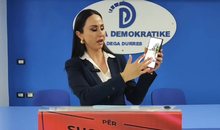
Kuçana: Opposition candidates have been threatened by "Rama's gangs in Shkozet"
2025-06-01 21:11:15
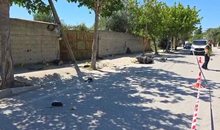

15-year-old injured in shooting at Ali Demi's pizzeria, details from police
2025-06-01 19:51:19

Russia accuses Ukraine of 'terrorist attack' on air bases
2025-06-01 18:57:24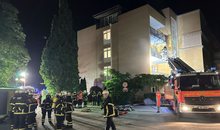
A hospital in Hamburg, Germany, catches fire, killing three patients
2025-06-01 18:32:28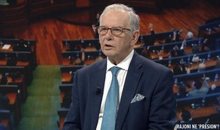
Nesho: Rama's autocratic regime has not allowed free elections to take place
2025-06-01 18:10:23
Moroccan immigrant's suicide, activist: There are inhumane conditions in Gjadra
2025-06-01 17:49:32
World Bank Report, PL: Confirms that the majority of Albanians live in poverty
2025-06-01 17:23:56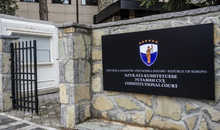
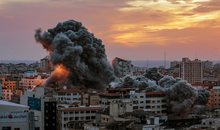
31 dead after Israeli attack near Gaza aid center
2025-06-01 16:40:30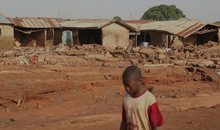
At least 150 dead in Nigeria floods
2025-06-01 16:14:26
Flames engulf the Darëzeza forest massif in Fier
2025-06-01 15:56:41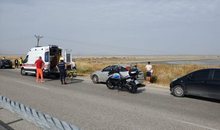
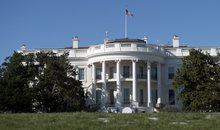
SHBA-ja i dërgon Iranit një propozim për marrëveshje bërthamore
2025-06-01 14:54:11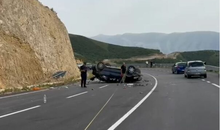

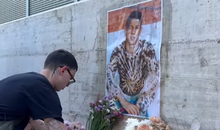
Moroccan immigrant commits suicide, activists protest in front of Gjadri camp
2025-06-01 13:48:17
PSG victory celebrations turn into tragedy, two dead, over 500 arrested
2025-06-01 13:26:33
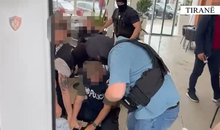
Kosovo-Albania arms trafficking, Tirana Court leaves 8 arrested in prison
2025-06-01 12:41:11
Foreign worker dies at work, engineer of construction firm arrested in Tirana
2025-06-01 12:20:27
Car hits motorbike, 25-year-old dies in Bilisht
2025-06-01 11:56:56
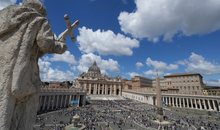
Why doesn't the Vatican recognize the state of Kosovo?
2025-06-01 11:22:07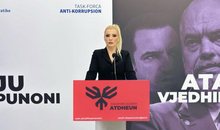

22-year-old arrested in Durrës, cocaine doses found hidden in his car
2025-06-01 10:40:20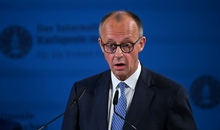
Merz to meet Trump in Washington on June 5
2025-06-01 10:18:13
Today, June 1st, is World Children's Day.
2025-06-01 10:01:13
Foreign exchange, the rate at which foreign currencies are sold and bought
2025-06-01 09:47:21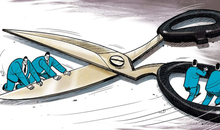
After the elections, the "fiscal peace" ends, the "war" begins
2025-06-01 09:24:30
PSG defeats Inter, grabs Champions League trophy
2025-06-01 09:08:08

Horoscope, what do the stars have in store for you today?
2025-06-01 08:40:10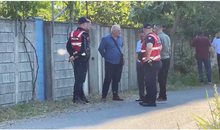
Serious in Tale, Lezha! 57-year-old man executed in the yard of his apartment
2025-06-01 08:25:55
Temperatures up to 31 degrees Celsius, weather forecast
2025-06-01 08:15:33
Morning Post/ In 2 lines: What mattered yesterday in Albania
2025-06-01 08:01:33
Anemia increases in the population
2025-05-31 22:18:38
Elections, Noka: A farce took place in Albania on May 11
2025-05-31 21:44:55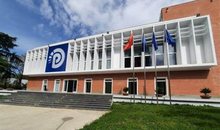
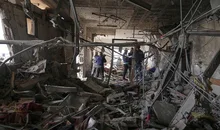
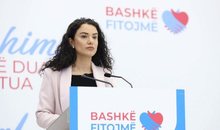
Jola Hysaj after the result in Durrës: The vote may have been alienated
2025-05-31 20:37:16

He was shot by his compatriot in Podgorica, the young 23-year-old Albanian dies
2025-05-31 19:58:13
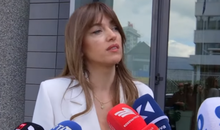
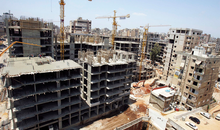
Ndërtime pa siguri? Humb jetën punëtori boshnjak në Tiranë
2025-05-31 18:59:42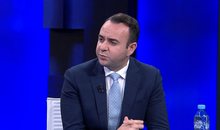
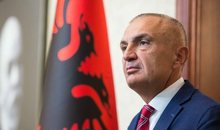
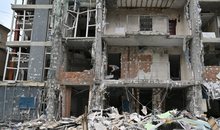
Russian attacks kill at least seven people in Ukraine
2025-05-31 17:35:43
Study: Half of the world experienced one more month of summer in 2024
2025-05-31 17:10:40
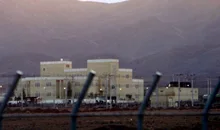
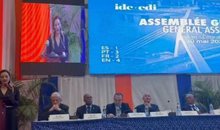
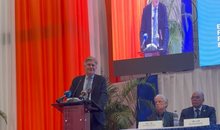

Tragedy in Germany, small plane crashes into a residential complex, two dead
2025-05-31 15:24:43

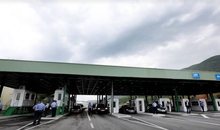
Wanted by German authorities, 22-year-old arrested at Morina border crossing
2025-05-31 14:39:44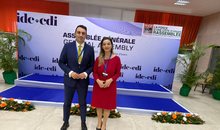

Threat or protection? Rama's stances towards SPAK spark contradictions
2025-05-31 13:54:59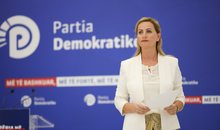
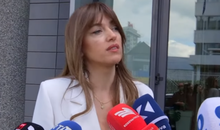
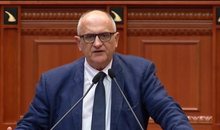
The poisoning of children in Gramsh, proof of the destruction of state control!
2025-05-31 12:59:40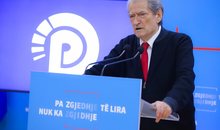

Car full of contraband cigarette cartons, 48-year-old arrested in Kapshtica
2025-05-31 12:30:43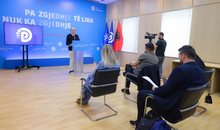
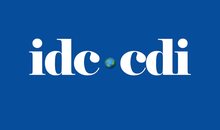

All the people (patronage) police
2025-05-31 11:59:12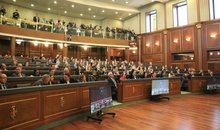
Dështon edhe seanca e 24-t, nuk ka konstituim të Kuvendit të Kosovës
2025-05-31 11:39:38

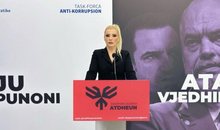
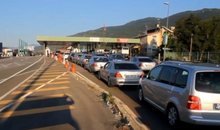
High flow of travelers at the Morina border crossing during the weekend
2025-05-31 10:20:31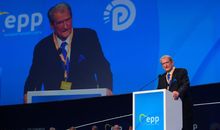
Berisha will participate in the EPP Political Assembly in Brussels on June 3-4
2025-05-31 09:58:13

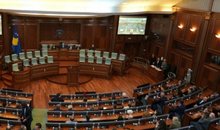
Today is the 24th attempt to constitute the Assembly in Kosovo
2025-05-31 08:58:30
Horoscope, discover the star forecast for your sign
2025-05-31 08:39:28
Weather forecast, how temperatures will vary throughout the day
2025-05-31 08:19:07
Morning Post/ In 2 lines: What mattered yesterday in Albania
2025-05-31 08:01:14
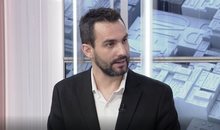
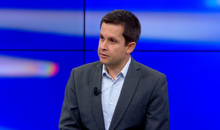

Bomb alert in a hotel in Tirana, what the police discovered
2025-05-30 22:05:17
The myth of 'eight hours of sleep' is debunked, here's what you need to consider
2025-05-30 22:01:55
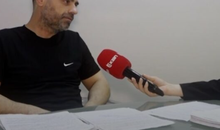
For 7 million Lek maintenance pension, the bailiff seizes his house
2025-05-30 21:42:00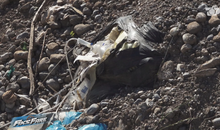

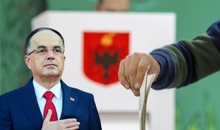

Video/ Bomb alarm in the parking lot of a hotel in Tirana, the police react
2025-05-30 20:59:35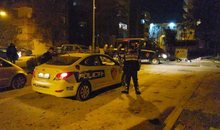
Shots fired in Durres, one injured
2025-05-30 20:50:12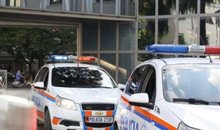
Bomb alert in the parking lot of a hotel in Tirana!
2025-05-30 20:25:46
